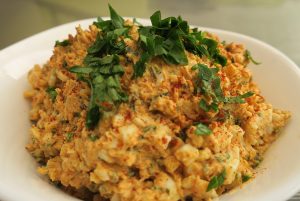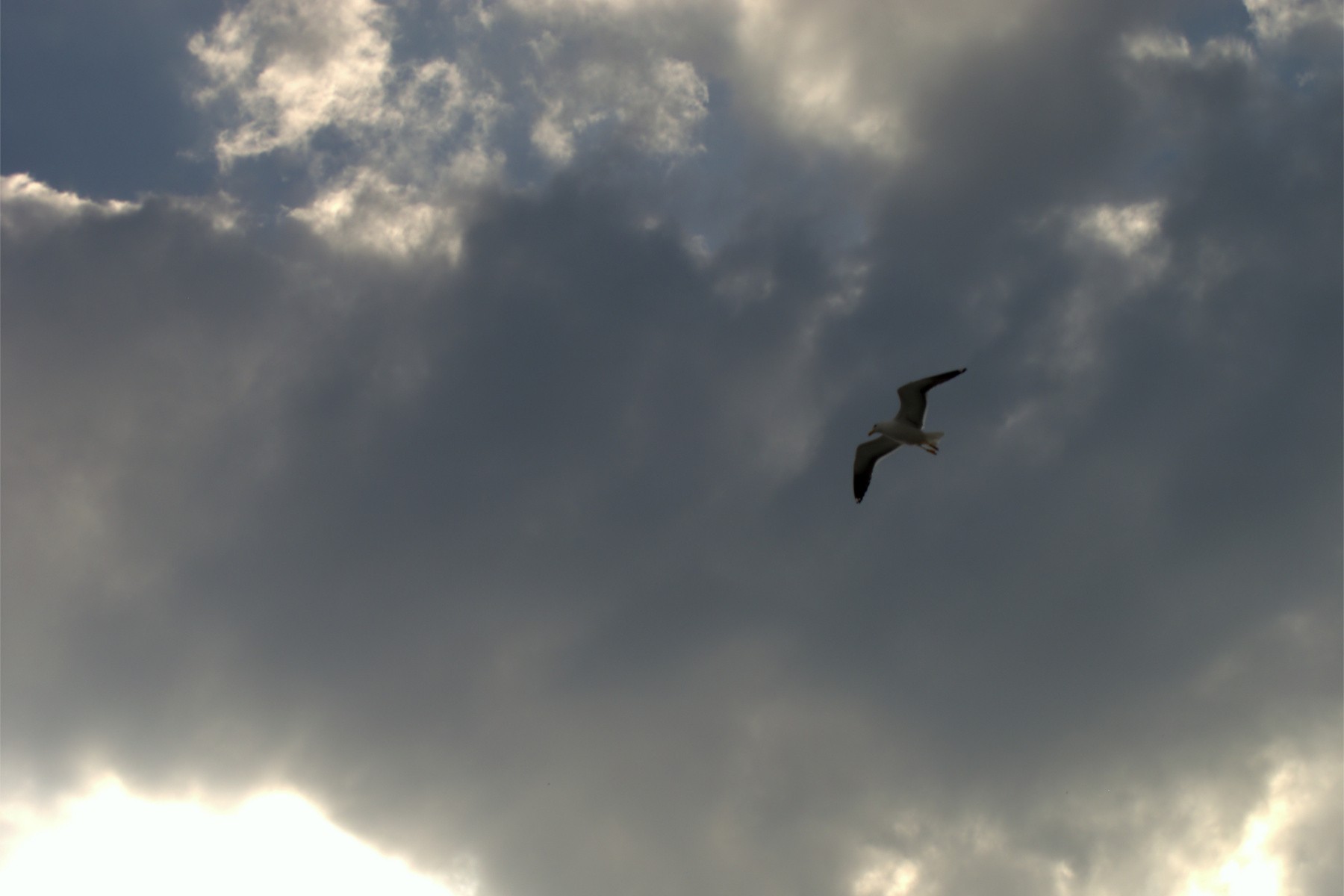 This is a true family recipe. When I made it for dinner today, I had to call my sister to make sure I remembered it correctly. We don’t know any place to find it other than our family’s collective memory.
This is a true family recipe. When I made it for dinner today, I had to call my sister to make sure I remembered it correctly. We don’t know any place to find it other than our family’s collective memory.
It was my sister’s idea that I should share the recipe on the blog. I never would have thought to include it because it’s not chocolate, but I suppose I can admit that I occasionally eat food with no chocolate content.
My family calls this the “Polish egg spread”; it was passed down to my dad’s mother by a German relative (I think). It’s easy to make, quite forgiving, and it’s delicious on a slice of fresh bread.
Ingredients:
- 6 hard-boiled eggs (not hot)*
- 50 g butter at room temperature
- 1 bunch chives, finely chopped
- 2 to 3 tsp paprika
- 1 Tbs mustard
- salt to taste (a big pinch, or if you use salted butter you don’t need much extra)
Instructions:
Crush the eggs with a fork or with a potato masher. Combine with the butter, then add all the flavourings and mix.
Enjoy!
*Did you know that the best way to make perfect hard-boiled eggs is to put them on the stove in cold water, heat on high until the water boils, then turn the heat off and leave the eggs in the water until it’s cool enough for your hands? This way, your eggs be hard in the centre but won’t have that overcooked grey layer around the yolks. If your stove is very powerful (big gas burner or induction), then leave the water boiling for a minute or so.

Sounds delicious. I will definitely make
When we moved to Utah, I was confused for a while because I seemed to have lost the ability to hardboil eggs. A few disappointing deviled eggs later, my spouse discovered it was because of the altitude (~4500 ft/1300 m above sea level). He looked up guidelines for elevation, and now he makes perfect hardboiled eggs every time. I think he starts them in cold water and boils them for a prescribed amount of time (maybe it was 10 minutes at sea level, 12 at elevation or something?). Next time I’m stuck doing it, I’ll give your method a try.
I have no experience cooking at high altitudes, but I heard it’s tricky! Water boils at a lower temperature, so you have to cook things longer? I’d be curious what happens if you try this method:). By the way, do you know the blog Hummingbird High? It started out as a high elevation baking blog (though it has since transformed into something else).
The boiling egg guide will also depend on ….
Egg size
Egg starting temp.(from fridge in USA not in Europe)
Speed to reach boiling point
Room temp….ie cooling speed
Heat tolerance of hand (I sometimes grab something from boiling water!)
Indeed:)! I have once overcooked eggs by this method: it was 40 eggs in a giant pot on a small burner, and it took half an hour to boil. A very sad day to ruin 40 eggs (it was the day before a big Easter brunch).
I have occasionally ended up with medium-boiled eggs too, on powerful burners when the water boiled quickly, and when I was impatient and tested the heat-tolerance of my fingers.
But it works well with medium large eggs (700g a dozen), starting at room temp, 6 in a small pot on an average gas or electric burner, then cooled to 50C or less:).